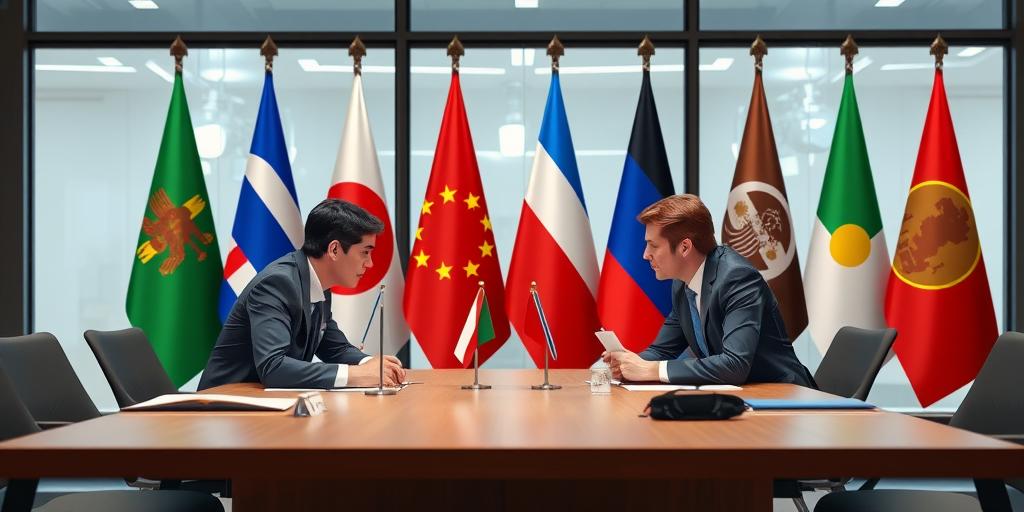The Art of Persuasion in International Diplomacy
International diplomacy is a multifaceted realm where nations interact, negotiate, and collaborate to address global challenges. At the heart of successful diplomacy lies the art of persuasion—a critical skill that enables diplomats to advance their country's interests while fostering cooperation and understanding among diverse actors. This post delves into the key elements of persuasion in international diplomacy, examining the strategies, techniques, and ethical considerations that underpin effective diplomatic engagement.
Understanding the Landscape of International Diplomacy
Before exploring the intricacies of persuasion, it's essential to understand the context in which diplomacy operates. International relations are characterized by a complex web of state and non-state actors, each with their own agendas, values, and priorities. Diplomats must navigate this landscape with a keen awareness of cultural nuances, historical grievances, and power dynamics.
Key Elements of Persuasion in Diplomacy
1. Building Trust and Rapport:
Trust is the foundation of any successful diplomatic endeavor. Diplomats must cultivate trust by demonstrating integrity, reliability, and respect for their counterparts. Building rapport involves establishing common ground, actively listening to different perspectives, and fostering personal connections.
2. Effective Communication:
Clear, concise, and persuasive communication is vital in diplomacy. Diplomats must articulate their country's positions with precision, while also being adept at interpreting non-verbal cues and understanding the underlying interests of other parties. Storytelling, framing, and rhetorical devices can be powerful tools for conveying messages effectively.
3. Strategic Use of Information:
Information is a valuable asset in diplomacy. Diplomats must gather intelligence, analyze data, and leverage information strategically to support their arguments and influence decision-making. However, it's crucial to use information ethically and avoid manipulation or distortion.
4. Negotiation and Compromise:
Negotiation is a central component of diplomacy, and persuasion plays a key role in reaching mutually acceptable agreements. Diplomats must be skilled negotiators, capable of identifying common interests, proposing creative solutions, and making strategic concessions when necessary. Compromise is often essential to achieve diplomatic breakthroughs.
5. Cultural Sensitivity and Empathy:
Cultural sensitivity is paramount in international diplomacy. Diplomats must be aware of cultural differences, avoid stereotypes, and demonstrate empathy towards other cultures and perspectives. Understanding cultural values and norms can help diplomats build stronger relationships and avoid misunderstandings.
Ethical Considerations
Persuasion in diplomacy must be guided by ethical principles. Diplomats have a responsibility to act in the best interests of their country while upholding international law, respecting human rights, and promoting peace and security. Deception, coercion, and manipulation are unethical tactics that can undermine trust and damage diplomatic relations.
Conclusion
The art of persuasion is an indispensable skill for diplomats navigating the complex world of international relations. By building trust, communicating effectively, leveraging information strategically, negotiating skillfully, and demonstrating cultural sensitivity, diplomats can advance their country's interests while fostering cooperation and understanding among nations. Ethical considerations must always be at the forefront of diplomatic engagement, ensuring that persuasion is used responsibly and in accordance with international norms.









